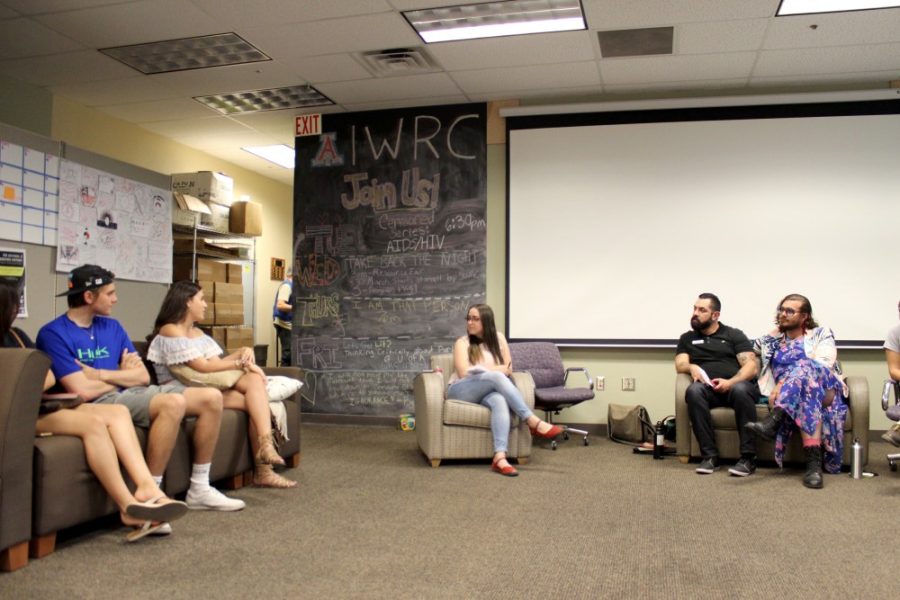The history of HIV/AIDS, PrEP, viral loads, the stigma behind the start of it all and where we need to go from here were some of the talking points touched upon in the last Censored Series of the Spring 2017 semester.
The talk was hosted in the Women’s Resource Center, where taboo topics are destigmatized and students can better educate themselves on often controvertial topics.
The event was hosted by Feminists Organized to Resist Create and Empower. The invited community experts were Miss Jai, Michael Lopez and Taylor Ducklow from the Southern Arizona AIDS Foundation.
“We just try to teach folks it’s more about safety and being able to have an honest conversation, because the reality is people living with HIV do not want to transmit HIV to other people,” Lopez said. “When transmission happens, it is usually when people don’t know, so testing yourself and knowing your status is so important.”
RELATED: UA experts help national team develop HIV cure
The discussion was led by Lili Steffen, who is the community outreach coordinator with FORCE, and the first question was “Where and how did you first hear about HIV/AIDS?”
Students and community members went on to discuss their stories of how they came to hear about the diseases, from first hearing it from a friend whose family member had been infected with the virus at the rise of the HIV/AIDS epidemic to learning about it in documentaries, social media, school or dramatic depictions in film and television.
“I’ve heard [HIV was] government-manufactured, [from] chimpanzees—both eating them and fucking them—, the flight attendant myth or patient zero in some country or even evolutionary theories. Really, there is no way for us to track how far back HIV goes,” Jai said.
Much of the stigma around HIV/AIDS also creates the problem of not being able to discuss it, and there is a large portion of marginalized communities affected by HIV/AIDS, most prominently LQBT and minority groups.
“I think we wouldn’t do this discussion justice if we didn’t mention marginalized [people] in our society who are greatly affected by HIV—people of color and trans people and how they are much more affected by HIV compared to cis-gendered people and white people,” Jai said. “They often have less access to health care, and there is more of a stigma.”
RELATED: Only you can prevent STIs: wildcats need to know these safe sex tips

Research continues daily, and there is an array of ways to protect yourself and others. Some of the biomedical interventions include pre-exposure prophylaxis, or PrEP, and post-exposure prophylaxis, or PEP, which both work to keep you as healthy as possible.
“PrEP, in a nutshell, is a daily pill someone would take to prevent themselves from acquiring HIV, and it’s pretty amazing stuff,” Lopez said. “This daily pill, done effectively, has about 92-98 percent [chance that patients] will not acquire HIV.”
Lopez also discussed treatment as prevention concerning those already infected with HIV.
With the proper medication and treatment, individuals who are positive can find themselves being very health and having a nearly nonexistent viral load, which means the risk of transferring the virus is very low.
Half the battle is knowing your own status to safeguard your health and the health of your sexual partners.
Confidential HIV/AIDS testing is available at the SAAF, where individuals will not be turned away. The suggested payment for testing is $20, enabling anyone to have information concerning their HIV status.
Follow David Pujol on Twitter.









